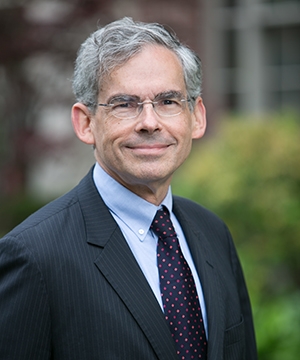Andrew Sabin Professor of Professional Practice, Columbia Law School
Michael Gerrard
Interviewer: Shelley Welton
Interview Date: July, 2019
Keywords: NEPA
Deep Decarbonization: Legal Impediments to a Massive Renewables Build-Out
“We are facing an existential environmental threat. One element of addressing that threat is a massive increase in renewable energy. … No facility has zero environmental impacts. If it takes five or ten years to get approval for a utility-scale solar or wind project, that is completely inconsistent with the pace at which we need to be moving in order to seriously address the climate problem. … It is very unfortunate when particular groups stand in the way because of particular, relatively minor site-specific impacts that these projects might have.”
“In my state, New York, which purports to like renewables, you have a whole lot of delays at the local level by communities that don’t want these facilities. … There’s a lot more that needs to be done here. … A very good model is the Telecommunications Act of 1996 [which] did not take away local authority, but constrained it.”
“It is essential to realize that there are no zero-impact solutions. … The magnitude of the climate challenge is such that we have to accept those tradeoffs.”
Michael Gerrard is Andrew Sabin Professor of Professional Practice at Columbia Law School, where he teaches courses on environmental law, climate change law, and energy regulation. He founded and directs the Sabin Center for Climate Change Law.
- “Legal Pathways for a Massive Increase in Utility-Scale Renewable Generation Capacity,” Environmental Law Reporter (2017)
- Renewable Energy Legal Defense Initiative
- Gerrard & Dernbach, “How Lawyers Can Help Save the Planet“
- Legal Pathways to Deep Decarbonizaton — project information
To learn more about Michael Gerrard, please visit his home page: HERE
Podcast: Play in new window | Download


Recent Comments